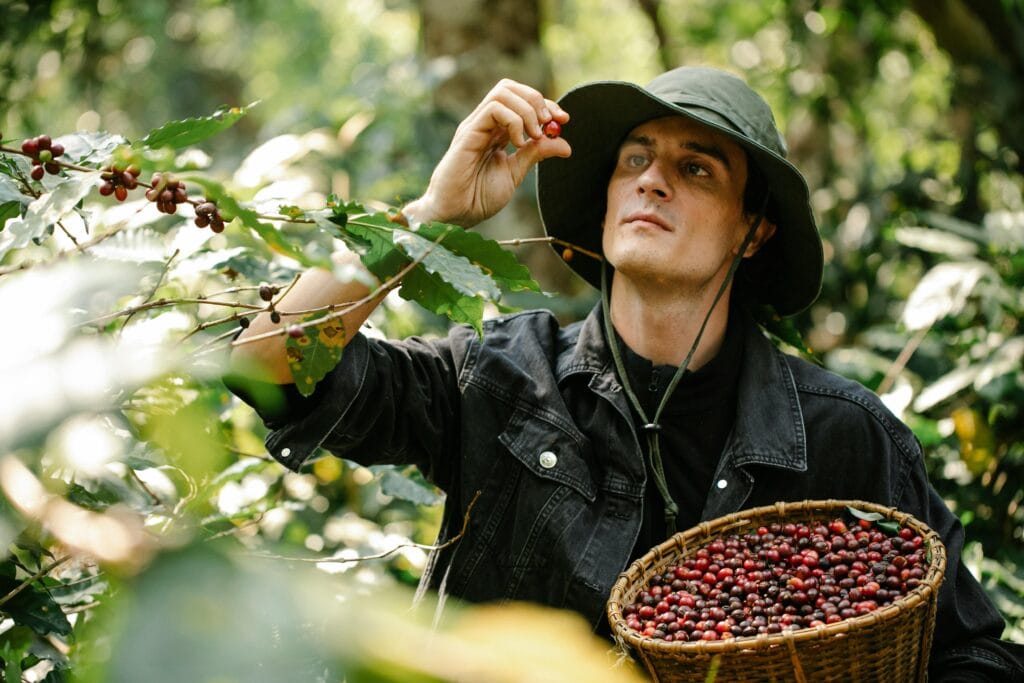Sustainable coffee: The world is waking up to the importance of sustainability.
Coffee lovers are no exception.
In 2025, sustainable coffee has become a key trend in the industry.
This article explores this topic’s significance and how it impacts consumers and producers alike.
We will discuss methods, benefits, challenges, and future prospects for sustainable coffee practices.
Understanding Eco-friendly Coffee
Sustainable coffee refers to ethical practices in growing, harvesting, and selling coffee.
This includes environmental stewardship as well as social responsibility.
Consumers increasingly seek products that align with their values.
As demand grows, so does the need for transparency in sourcing.
Why Sustainability Matters
First, let’s examine why sustainability is crucial for coffee production.
Climate change poses a significant threat to traditional farming methods.
Rising temperatures affect crop yields globally.
Moreover, deforestation due to conventional farming techniques harms ecosystems.
By choosing sustainable options, you support farmers who prioritize eco-friendly practices.
Popular Methods of Ethical Coffee Production
One methodology gaining traction is shade-grown coffee cultivation.
This practice involves planting coffee under tree canopies.
It protects biodiversity while providing habitat for wildlife.
Additionally, organic farming eliminates harmful chemicals from the environment.
Fair Trade certification ensures farmers receive fair wages and work under humane conditions.
Benefits of Choosing Sustainable Coffee
- Environmental Impact:
Purchasing sustainable coffee helps reduce ecological damage caused by conventional agriculture. - Support Local Communities:
Many sustainable brands invest profits back into local communities. - Quality Assurance:
Often sustainably produced coffees boast superior flavor profiles due to careful cultivation methods. - Health Benefits:
Organic coffees contain fewer pesticides which may lead to better health outcomes for consumers.
Challenges Facing Sustainable Coffee Producers
Despite its benefits, there are hurdles in promoting sustainable practices:
- Higher Costs:
Sustainable methods often come with increased costs that may deter some producers. - Education Gap:
Many small-scale farmers lack knowledge about implementing these practices effectively. - Market Competition:
Conventional brands dominate shelves making it difficult for smaller players focused on sustainability.
Consumer Awareness and Responsibility
As consumers begin prioritizing ethical purchases more than ever before,
knowledge becomes power when selecting your next cup!
Look out for certifications like Fair Trade or Rainforest Alliance on packaging—these indicators show commitment towards responsible sourcing!
Advocating awareness through blogs or social media plays an essential role here too!

Future Prospects for Sustainable Coffee
Looking ahead at trends shaping our industry we notice several exciting developments:
1) Technology Integration
Innovations such as blockchain technology promise supply chain transparency enhancing consumer confidence.
2) Climate Resilience Strategies
Research continues on crop adaptation strategies ensuring long-term viability amidst changing climates.
3) Increased Collaboration
Partnerships between NGOs & businesses pave paths toward holistic approaches benefiting everyone involved.
Conclusion
Embracing sustainability isn’t just good ethics; it’s vital moving forward within our beloved beverage industry!
Choosing sustainably sourced coffees contributes positively towards climate preservation while uplifting marginalized communities globally!
Next time you’re enjoying your brew think about where it came from—and how you can make informed choices today!
References
International Institute for Environment and Development (IIED). (2025). Coffee’s Future – A Global Perspective. London: IIED Publishing.
Rainforest Alliance (2025). Benefits of Certified Coffee. Available at https://www.rainforest-alliance.org.
Fairtrade Foundation (2025). Impact Report 2025. Available at https://www.fairtrade.org.uk.
Smithsonian Migratory Bird Center (2025). Shade-Grown Coffee Research. Washington D.C.: Smithsonian Institution Press.
Food & Agriculture Organization (FAO). (2023). The State of Agricultural Commodity Markets 2023. Rome: FAO Publications.


Pretty! This has been a really wonderful post. Many thanks for providing these details.
Great information shared.. really enjoyed reading this post thank you author for sharing this post .. appreciated
Hi there to all, for the reason that I am genuinely keen of reading this website’s post to be updated on a regular basis. It carries pleasant stuff.
Very well presented. Every quote was awesome and thanks for sharing the content. Keep sharing and keep motivating others.
I am truly thankful to the owner of this web site who has shared this fantastic piece of writing at at this place.